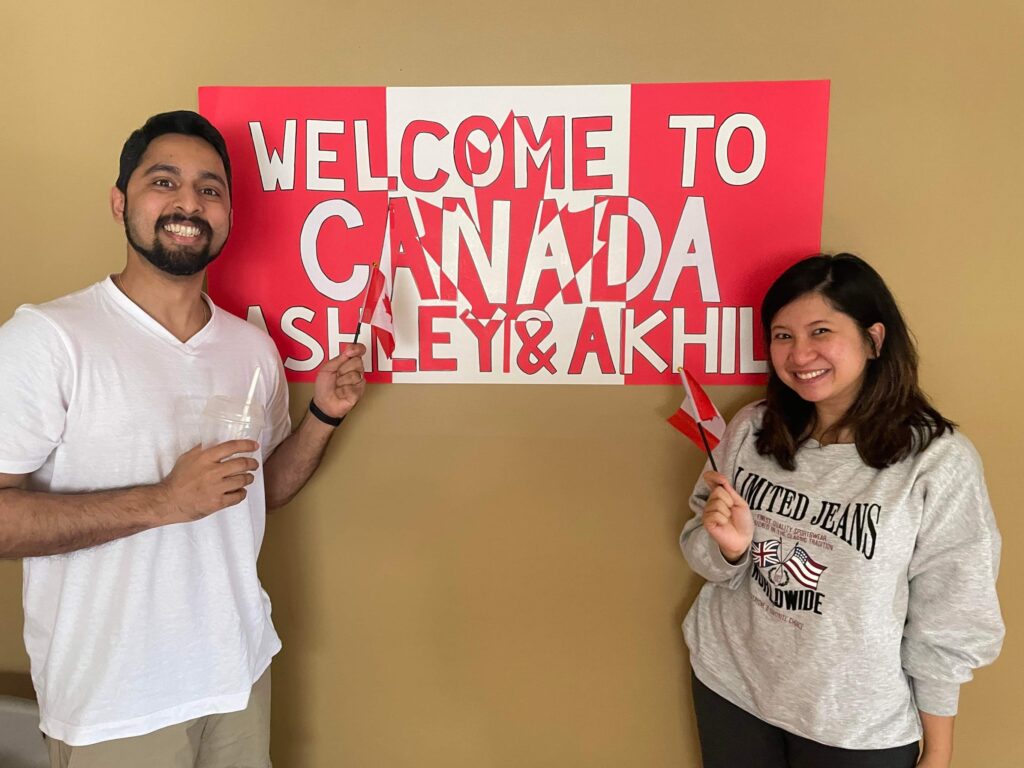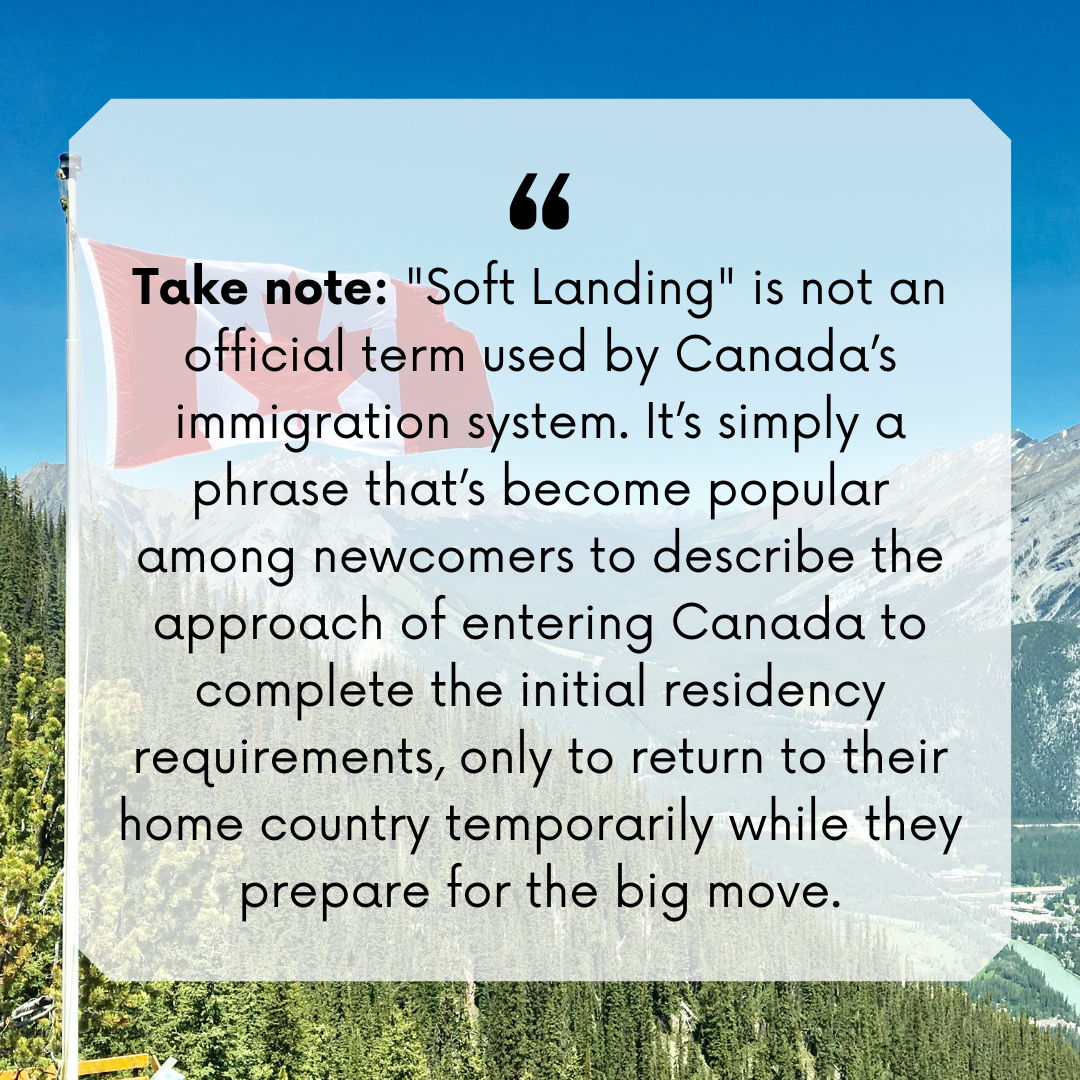
You did it! You received the Passport Request email from Immigration, Refugees, and Citizenship Canada (IRCC), and now it’s only a matter of time before you get that single-entry stamp on your passport. For us, our single-entry stamp is valid for one year, meaning we have that time to land in Canada and complete the formalities. But here’s the thing—despite all the preparations, moving to Canada wasn’t as simple as just hopping on a plane and calling it official.
If you’re in a similar situation, you might find yourself with a lot of uncertainties. There are so many things to consider—like where you’ll live, finding a job, packing up your life, and saying goodbye to family and friends, most of whom you likely won’t see again for years.
Because we weren’t fully ready to make the big move right away, we decided to take advantage of our one-year visa and go for a Soft Landing instead. So, what’s a Soft Landing? It’s when you land in Canada, complete the formalities at the border, and officially become a Permanent Resident. After that, you can leave Canada, go back to your where you’re residing, but you’ll still be considered a Permanent Resident.

Here’s why this made so much sense for us.
Why a Soft Landing Worked for Us
Time to Plan Our Big Move:
We’d been living in Malaysia for 8 years, and during that time, my husband had a stable job, we had our dogs, and financially, we just weren’t ready. The Soft Landing gave us the time we needed to complete the PR formalities and plan for our next steps without the immediate pressure of settling in right away.It Was Our ‘Testing the Waters’ Trip:
Back in 2022, we were hearing a lot of news about how tough life was in Canada. Coming from an Asian country where the cost of living is so much lower, we started questioning if the move was really for us. So, we decided to test the waters—experience the culture, meet the people, check out the environment, transportation, and just get a feel for daily life in Canada.We visited a friend in Winnipeg (I know, it’s a lot different from Toronto, but hey, Canada’s Canada eh!). We spent time doing touristy things, but we also got into the practical stuff: opening a bank account, applying for credit cards, getting our Social Insurance Number (SIN), grocery shopping to see how much we’d be spending, looking into housing, and just getting a rough idea of what life would cost and what we’d need to adjust.

Building Our Credit History Early:
One unexpected benefit of our Soft Landing was that we could start building our Canadian credit history after getting our credit cards. When we came back in 2023 to look for a place in Toronto, having credit cards and some credit history made a big difference. In Canada, landlords often check your credit score, so having one helped make house hunting easier. It can be harder to find a place if you don’t have a credit score yet or if it’s brand new, since many landlords prefer renters with an established credit history.More Time to Save:
Canada can be three times more expensive than Malaysia in many ways. We quickly realized our savings wouldn’t be enough to cover everything—emergency funds, housing, transporting our two dogs, and even booking an Airbnb for a month as we transitioned. The extra time allowed us to save up more and ensure we were financially ready for the move.Securing Jobs Before the Move:
Finding a job in Canada can be tough—even for those with years of experience. After our Soft Landing, we focused on securing jobs before we moved. Thankfully, I found a remote job with a U.S.-based company, and my husband was able to secure an internal transfer within his company in Malaysia. This gave us peace of mind, knowing we wouldn’t be burning through our savings while job hunting.
Is a Soft Landing Right for You?
A Soft Landing worked perfectly for us, but it’s not for everyone. Here are a few reasons it might not be the right choice for you:
It’s Expensive:
If you’re coming from an Asian country like we did, round-trip flights to Canada aren’t cheap. You’ll also need to cover accommodation, food, transportation, and other expenses during your visit. These costs can add up, so it’s important to factor this into your decision. If you’re lucky like we were, maybe a friend can cover some of your expenses, but if not, it can get costly.You’re Ready to Move Immediately:
If you’ve already said goodbye to your family and friends, have your work situation sorted, and have a support system in Canada, then a Soft Landing might not be necessary. Some people are just ready to dive in and settle right away.
Moving to a new country is a huge decision, and everyone’s situation is different. A Soft Landing gave us the time to plan, save, and test the waters before making the full move. It was a strategic choice that helped us feel more confident about our decision.
If you’re considering a Soft Landing, weigh the pros and cons based on your own situation. It might be exactly what you need to ensure a smoother transition to life in Canada.